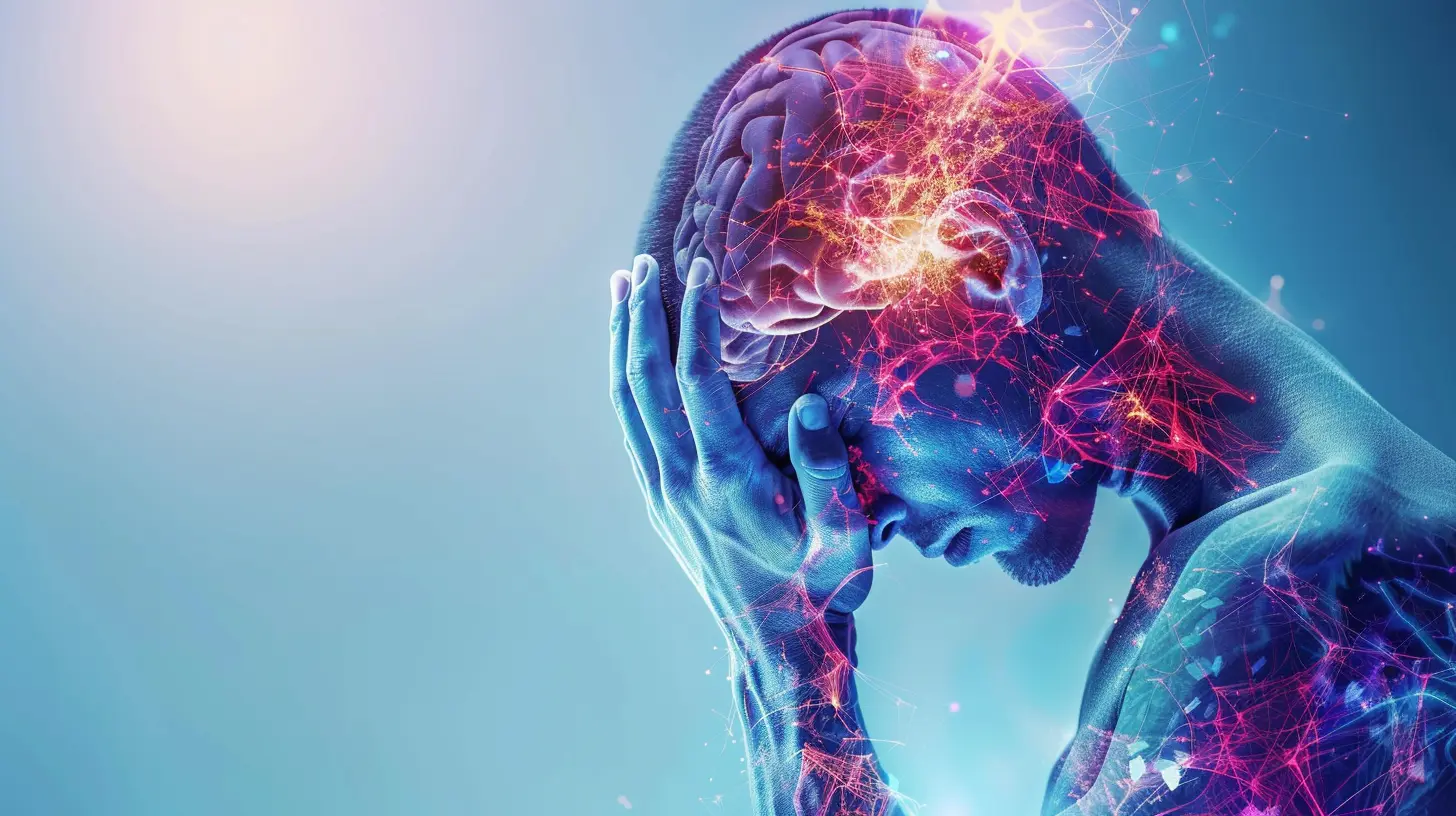The Psychological Effects of Chronic Illness: A Clinical Overview
4 October 2025
Let’s be real for a second — living with a chronic illness is no walk in the park. And while we often talk about the physical stuff (the meds, the appointments, the treatments), we tend to sweep the emotional and psychological toll under the rug. That’s like fixing a squeaky car engine and ignoring the flat tire — eventually, you’re going nowhere fast.
In this article, we’re diving deep (but in a chill, understandable way) into the psychological effects of chronic illness. From anxiety to identity shifts, we’re unpacking it all. So grab your cup of coffee (or herbal tea, if that’s your vibe), and let’s get into it.
So, What Even Is a Chronic Illness?
Before we roll into the psychology side of things, let’s clear the air on what we mean by “chronic illness.”A chronic illness is a long-term health condition that typically doesn’t have a cure — we’re talking about diabetes, arthritis, lupus, Crohn’s disease, multiple sclerosis, and even long COVID (yup, that’s a thing now). These illnesses usually linger for months, years, or a lifetime.
They’re like that guest who shows up uninvited and refuses to leave. Ever.
How Chronic Illness Sneaks Into the Mind
You might think, “Okay, it’s a physical illness. Why would it mess with my brain?” Oh, friend. Chronic illness is a full-body, full-mind experience. It doesn’t punch just one part of your life; it throws elbows in every direction.Here's how these illnesses creep into the psychological world:
1. The Emotional Whiplash
Imagine being told you’ll have to manage a condition for the rest of your life. That’s enough to make anyone want to scream into a pillow.Dealing with a diagnosis can trigger a rollercoaster of emotions — denial, anger, sadness, fear, you name it. It’s like going through the five stages of grief... but instead of losing someone else, you’re grieving a version of your own life.
2. Anxiety and Depression Love to Tag Along
Two of the most common partners-in-crime that appear alongside chronic illnesses? Anxiety and depression.- Anxiety might stem from worrying about flare-ups, medical costs, or fearing the future.
- Depression can roll in when you feel helpless, isolated, or like your illness has stolen the life you planned.
It’s estimated that people with chronic illnesses are two to three times more likely to experience mental health disorders. That’s not just a minor stat — that’s a warning flare.
3. Identity Shift: Who Even Am I Anymore?
Here’s the thing: when you live with a health condition every single day, it can start to feel like it defines you. You’re no longer “Amy who loves hiking” — you’re “Amy with rheumatoid arthritis who cautiously hikes on good days.”This shift can send your self-identity into tailspin mode. Your job, hobbies, and relationships may all change, and that can leave you wondering where the old “you” went.
The Vicious Cycle of Pain and Mood
Let’s talk about chronic pain for a hot minute. Not all chronic illnesses involve pain, but many do — and if you’ve ever had it, you know it’s a beast.Here’s the twist: pain and mood are besties. The more pain you’re in, the worse your mood becomes... and the worse your mood becomes, the more intense the pain feels. It’s a tango of torment.
This is called the pain-depression cycle, and breaking it is tough without some serious mental jiu-jitsu (aka therapy and proper care).
Isolation Station: Population, You
You’d think in the age of social media and smartphones, no one would feel alone. But chronic illness has a sneaky way of pulling people into their own little bubbles.Friends stop inviting you out because "you're always too tired." You cancel plans (again). You miss family events. And suddenly, you're binge-watching shows alone on a Tuesday night, feeling invisible.
This social isolation can tank your mental health faster than a bad breakup. Humans are wired for connection, and isolation cuts that cord.
Relationships Start to Feel Different
Chronic illness doesn’t just affect you — it touches everyone around you. Your partner, your kids, your friends, your boss — they’re impacted in big and small ways.This can lead to:
- Strained relationships: Partners might feel more like caregivers. Friends might not “get it.”
- Guilt: You feel like a burden (even though you’re not — we mean it).
- Resentment: On both ends. It’s real, and it’s okay to admit.
Psychologically, this messes with your ability to trust, depend on others, or even feel worthy of love. It’s deep stuff.
The Fear of the Future (a.k.a. Health Anxiety)
Living with chronic illness means constantly thinking ahead — about medications, symptoms, side effects, future complications. It’s like your brain won’t turn off.This health-related anxiety can become overwhelming. Even small symptoms might feel like looming disasters. And when your condition is unpredictable, it makes sense your brain goes into overdrive.
You're not being dramatic — you're literally trying to stay alive and functional in an unpredictable world. That kind of stress is exhausting.
The Bright Side (Yeah, There Is One!)
Okay, so this article isn’t exactly full of sunshine and rainbows so far. But hang in here with me — there are some silver linings worth talking about.1. Resilience Builds Like Muscle
You’ve probably heard the cliché: “What doesn’t kill you makes you stronger.” It’s overused, but not completely off-base.People with chronic illnesses often develop intense resilience — the kind that makes them emotionally strong, incredibly empathetic, and straight-up warriors.
You learn to adapt, pivot, and find joy in small victories. That’s not weak — that’s ninja-level strength.
2. A New Perspective on Life
Struggling with your health forces you to slow down and reflect. You start appreciating the good days, the small wins, the laughs. Your new normal might not be what you chose, but it can still be beautiful.You know those people who seem wise beyond their years? Chances are they’ve faced some tough stuff. Chronic illness has a weird way of reshaping your worldview — and sometimes, for the better.
How Can We Help Our Minds While Managing Our Bodies?
Let’s flip from problems to solutions. What can you actually do to protect your mental health while managing a chronic illness?1. Therapy Is a Power-Up
Seeing a mental health professional isn’t admitting defeat — it’s smart self-defense. Therapy, especially cognitive behavioral therapy (CBT), can help you manage the mental twists and turns that come with illness.Group therapy, support groups, and even online therapy platforms can be game-changers.
2. Move When You Can
Exercise looks different for everyone but moving your body — even gently — releases endorphins, aka your brain’s organic anti-depressants.Think yoga, stretching, chair workouts, or just walking your dog around the block. Start small. No marathons required.
3. Create Joy On Purpose
Set up intentional joy moments. Watch your favorite comfort show. Start a small hobby. Plant something. Dance a little. Journal.These don’t cure the illness, but they help balance your mental ecosystem. These are your emotional vitamins.
4. Lean Into Community
Find people who get it. Online forums, local meetups, Facebook groups — communities where you don’t have to explain your fatigue or your hospital bracelet can be a lifeline.You shouldn’t have to fight this alone. Support makes a ridiculous amount of difference.
The Clinical Takeaway (Without the Jargon)
In the world of psychology, chronic illness is a complex, layered challenge. It affects cognition, emotion, behavior, and interpersonal relationships. Clinicians often approach it through a mix of medical treatment, psychotherapy, medication for mood symptoms, and social support strategies.But here’s the bottom line: Your mental health matters just as much as your physical health. You’re not “crazy.” You’re not “too sensitive.” You’re someone navigating chronic illness — and that’s a hell of a lot.
Final Thoughts: It’s Okay to Not Be Okay
If you’ve made it this far, first of all — hug yourself. Seriously. Chronic illness is exhausting, and reading about it while maybe even living it? That’s some superhero-level stuff.The psychological effects are real, valid, and deserve attention. Don't sweep them under the rug. Whether you're a patient, caregiver, or medical professional, keep having these conversations. Normalize them. Validate them. Make space for the invisible struggles.
Let’s stop pretending mental health is the sideshow in the chronic illness circus. It’s center stage, and it’s time we all watched the whole act.
all images in this post were generated using AI tools
Category:
Clinical PsychologyAuthor:

Alexandra Butler
Discussion
rate this article
1 comments
Grace Jenkins
Chronic illness can be a heavy burden, yet it often unveils incredible resilience and strength within us. Embrace each step of your journey towards healing and self-discovery!
October 8, 2025 at 3:24 AM

Alexandra Butler
Thank you for highlighting the strength and resilience that can emerge from chronic illness. It's a vital part of the healing journey.


